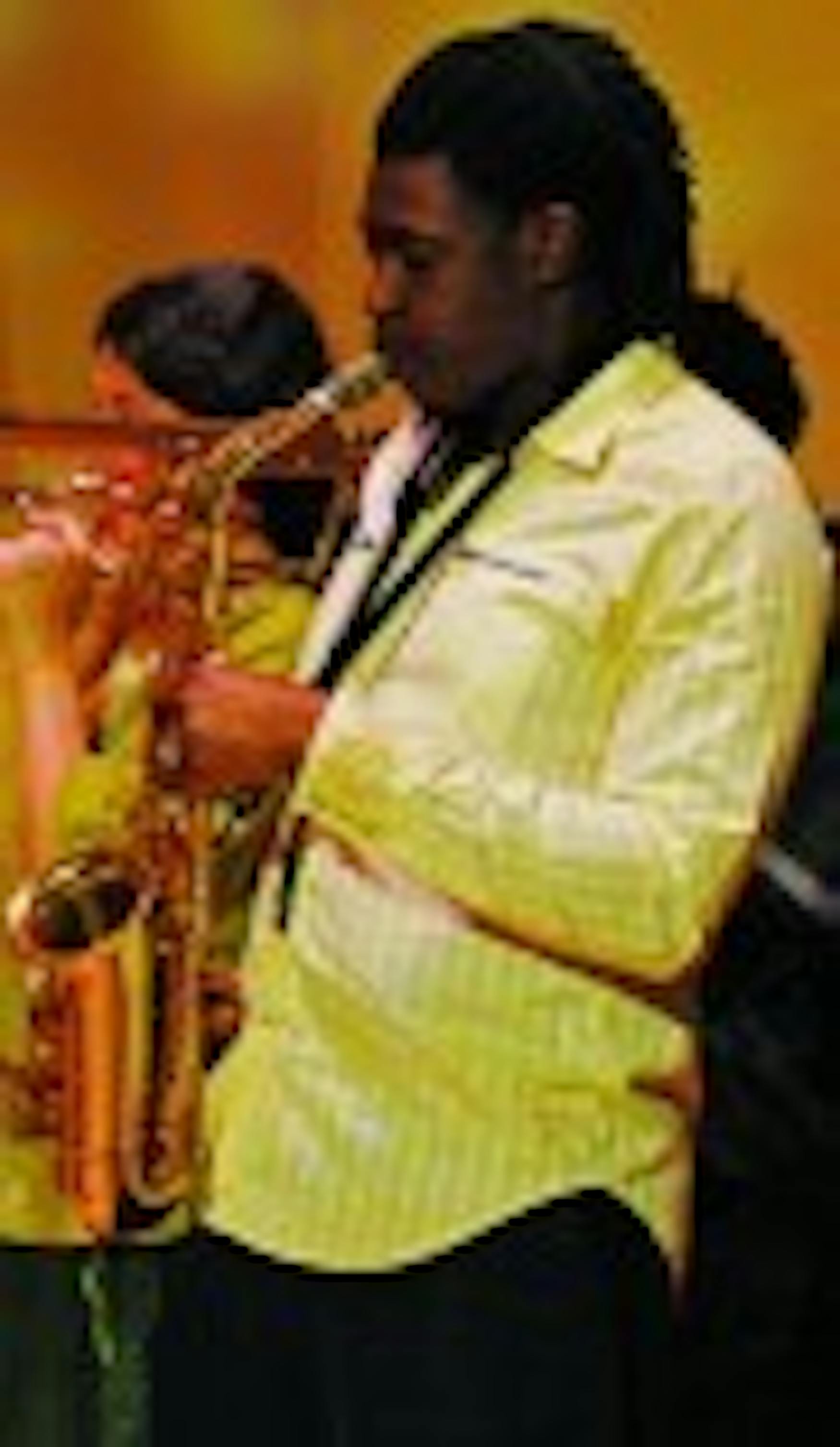Touré's African beats enchant listeners
Afrobeat/funk band Group Saloum joined the Senegalese drummer as a part of the MusicUnitesUS series
They don't usually hand out earplugs at the Slosberg Recital Hall. It's not just that the Music department typically invites chamber or acoustic musicians to play or that loud rock bands will usually opt to play at Cholmondeley's; it's that the hall itself was built to resonate and amplify sounds such as the hammer of a piano striking the string or a violin's delicate pizzicato. So imagine, then, the sheer sound filling the spaces of the hall as Lamine Touré struck his sabar drum in a sold-out concert last Saturday. The way each note spread outward was fascinating; each hit of Touré's six drums had a unique ring to it, bouncing between the walls and the ceiling of the hall. Soon, as the percussive conversation became a rapid chatter of syncopated and accented beats, the Recital Hall felt alive with the force of Senegalese drumming.
The concert, titled "Lamine Touré and Group Saloum: BOekk to the Future," was the culmination of a 4-day stay at Brandeis that included lectures, workshops and performances with the members of Group Saloum and various classes in the Music, Fine Arts, Theater, African and Afro-American Studies and Psychology departments as well as the International and Global Studies program. The residency was part of the MusicUnitesUS series, a collaborative world music program founded and directed by Prof. Judith Eissenberg (MUS). It was curated by the Massachusetts Institute of Technology ethnomusicologist Patricia Tang, who wrote a book that examines the role of Wolof griots-traditional Senegalese historians-like Touré in contemporary Senegalese culture. She and Touré are married and live together in Boston.
Touré, his long, dreadlocked hair swaying on the sides of his colorful outfit as he drummed with energy and precision, drew the members of Group Saloum-which include a trombonist, saxophonist and full rhythm section-toward the center of the stage as he danced, sang and cajoled the audience into moving with the beat. He yelled out Wolof chants that urged students to study hard and appreciate their mothers-appropriate for the family weekend-forming a call-and-response with the listeners and the drums. This is a type of music that inspires dance and celebration, a fevered sound that cannot be enjoyed passively. Most of the people sitting down comfortably in their seats that night eventually realized that moving to Group Saloum's hard-hitting Afrobeat grooves was the best way to experience it.
Hardly anyone had earplugs in, though it was more of a testament to their preoccupation with African showcase than the music's lack of amplitude. Touré's performance ranked as one of the loudest for the Music department and the first that had sold out and still garnered such a huge waitlist. If the throngs of families waiting outside the Slosberg lobby as the concert began were any indication, Brandeis had greeted Group Saloum's residency with open arms and dancing feet.




Please note All comments are eligible for publication in The Justice.